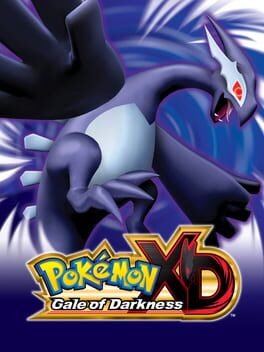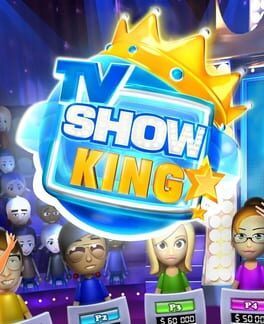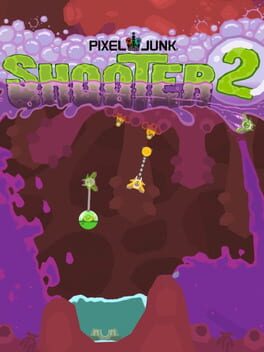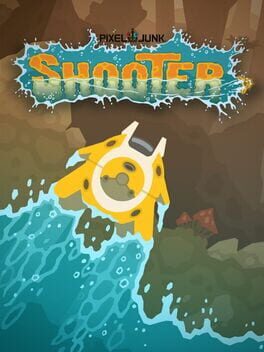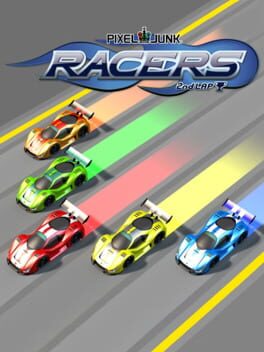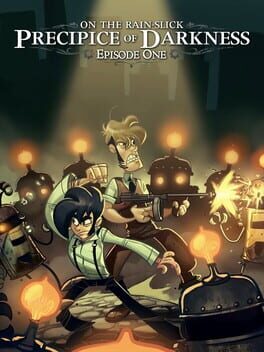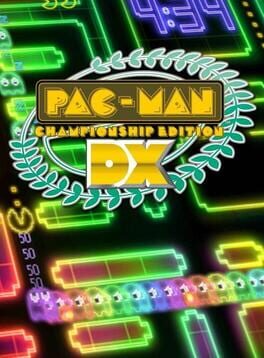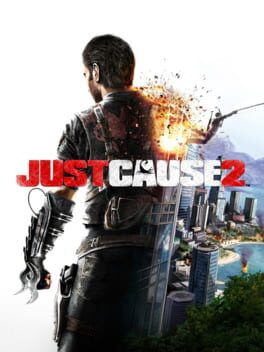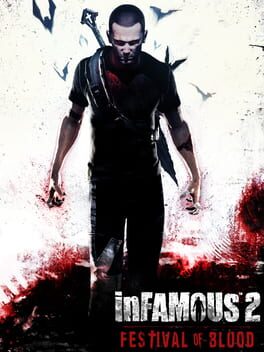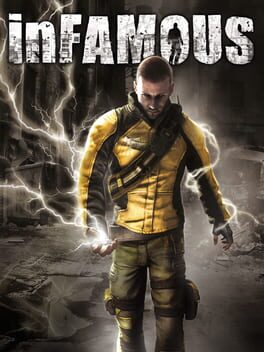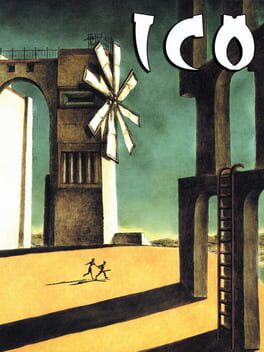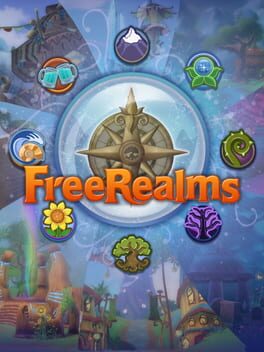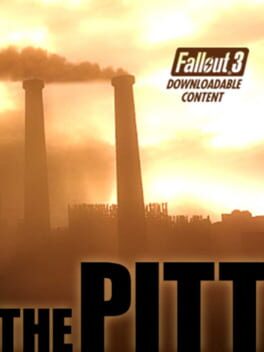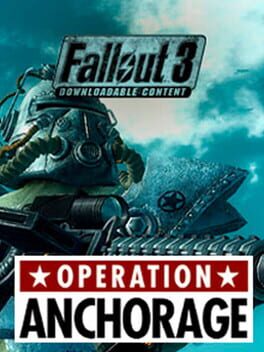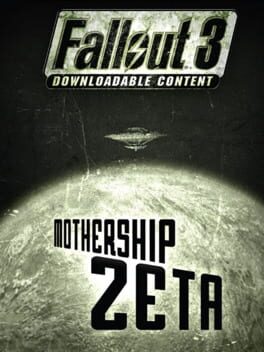Lucca202
BACKER
So, I know what you're thinking, and it stands for "Extra Dimension". Okay? Is that cleared up? Okay. On to the review, then.
A direct sequel to Pokémon Colosseum, Pokémon XD: Gale of Darkness is one of the most underrated games in the franchise. For two reasons: one, it was released near the very end of the GameCube's life, a console which, as we all know, got destroyed by the competition and not many people owned; and also, because of the nature of its predecessor.
See, as good as it was, Colosseum's story mode was more of an extra mode than a main game. The game, as its name suggest, was meant more as 3rd gen analogue to Pokémon Stadium, a game that allowed you to bring your creatures over to the console and battle in full 3D. Even though XD was meant to be the exact opposite, that is, RPG with extra Stadium content, a lot of people gave up on the game as soon as they heard it described as a sequel to Pokémon Colosseum.
Which is a shame -- XD was as close as we would get to a full-fledged mainline 3D Pokémon game until X came along. It's story was fleshed out and complete, and while it did not offer a Pokédex and the usual catch 'em all shenanigans, that absence was hard to notice, seeing how much of a well-rounded game it was.
The game takes place five years after the original Colosseum, with Wes and Rui nowhere to be found, and Orre having largely recovered from the Shadow Pokémon crisis. You play as a child living in a research facility for Pokémon purification, its scientists intent on never letting such a disaster befall their region again. Their research, however, ends up making them a target for nefarious forces intent on creating the perfect, unpurifiable Shadow Pokémon.
The game plays just like Colosseum did, with Double Battles by default and your character having the ability to steal Shadow Pokémon from their adversaries. This time around, due to the recovery of Orre's ecosystems, you can even catch Wild Pokémon, but it's a minor mechanic that it goes largely unused.
Aside from janky Gen III mechanics -- no Physical/Special split, for instance -- the game has aged near perfectly: Orre is a completely different region from anything we'd seen, and Shadow Pokémon remain a memory from this era (unless you count Pokémon GO, and you shouldn't). It's a perfect example of how small twists in the main series' formula can generate completely different games, and why the experiments going on with the franchise recently have me so excited.
Absolutely play this gem. Do Colosseum first, though, it possible.
A direct sequel to Pokémon Colosseum, Pokémon XD: Gale of Darkness is one of the most underrated games in the franchise. For two reasons: one, it was released near the very end of the GameCube's life, a console which, as we all know, got destroyed by the competition and not many people owned; and also, because of the nature of its predecessor.
See, as good as it was, Colosseum's story mode was more of an extra mode than a main game. The game, as its name suggest, was meant more as 3rd gen analogue to Pokémon Stadium, a game that allowed you to bring your creatures over to the console and battle in full 3D. Even though XD was meant to be the exact opposite, that is, RPG with extra Stadium content, a lot of people gave up on the game as soon as they heard it described as a sequel to Pokémon Colosseum.
Which is a shame -- XD was as close as we would get to a full-fledged mainline 3D Pokémon game until X came along. It's story was fleshed out and complete, and while it did not offer a Pokédex and the usual catch 'em all shenanigans, that absence was hard to notice, seeing how much of a well-rounded game it was.
The game takes place five years after the original Colosseum, with Wes and Rui nowhere to be found, and Orre having largely recovered from the Shadow Pokémon crisis. You play as a child living in a research facility for Pokémon purification, its scientists intent on never letting such a disaster befall their region again. Their research, however, ends up making them a target for nefarious forces intent on creating the perfect, unpurifiable Shadow Pokémon.
The game plays just like Colosseum did, with Double Battles by default and your character having the ability to steal Shadow Pokémon from their adversaries. This time around, due to the recovery of Orre's ecosystems, you can even catch Wild Pokémon, but it's a minor mechanic that it goes largely unused.
Aside from janky Gen III mechanics -- no Physical/Special split, for instance -- the game has aged near perfectly: Orre is a completely different region from anything we'd seen, and Shadow Pokémon remain a memory from this era (unless you count Pokémon GO, and you shouldn't). It's a perfect example of how small twists in the main series' formula can generate completely different games, and why the experiments going on with the franchise recently have me so excited.
Absolutely play this gem. Do Colosseum first, though, it possible.
2008
Regret. The only thing that comes to my mind looking at this game is regret.
So this game was really popular in trophy hunting circles for a brief moment because it offered 19 trophies -- mind you, not many games had trophies this early on -- and it cost like $0.99. And I mean, it's a quiz game, I guess. It works, if you're up to it and have brushed up on your American trivia. Myself, just the fact that I had to go online to boost the last trophy was already much more trouble than it was worth.
Thank Arceus I'm out of that obsessive trophy hunting phase.
So this game was really popular in trophy hunting circles for a brief moment because it offered 19 trophies -- mind you, not many games had trophies this early on -- and it cost like $0.99. And I mean, it's a quiz game, I guess. It works, if you're up to it and have brushed up on your American trivia. Myself, just the fact that I had to go online to boost the last trophy was already much more trouble than it was worth.
Thank Arceus I'm out of that obsessive trophy hunting phase.
2011
PJS2 continues from where PJS left off, and basically provides more of the same game. The issue, though, aside from the clearly bolted-on multiplayer, is that there are a lot more cheap deaths in this game, which makes it drag on a lot more. I guess if you really like the first game, go for it, but it does overstay its welcome a bit.
2009
2010
Now, there are franchises for which I -- and many other people -- would kill to have a what-if scenario involving vampires. AO3 stands as living proof of that. inFamous wasn't exactly on my list, but I took what I could get, and you know what? It was enjoyable.
The game features a what-if scenario where Cole gets turned into a vampire. The script is pretty derpy, so adjust your expectations for that, but his new vampire powers are pretty fun to play around with.
Issues with the game can be summarized by it not being fleshed out enough, which, I guess standalone expansions might have been considered a huge risk at the time. It needed to be longer, and more challenging. But hey, to its credit, "I wanted more of it" is a pretty great detriment to have.
The game features a what-if scenario where Cole gets turned into a vampire. The script is pretty derpy, so adjust your expectations for that, but his new vampire powers are pretty fun to play around with.
Issues with the game can be summarized by it not being fleshed out enough, which, I guess standalone expansions might have been considered a huge risk at the time. It needed to be longer, and more challenging. But hey, to its credit, "I wanted more of it" is a pretty great detriment to have.
2009
inFamous was pretty mindblowing way back when it was released: a fast-paced open world superhero game with great action. It wasn't free of problems, though... for one, it featured the single worst morality system in history, that might as well have been replaced with a yes-no "are you evil" question at the start of the game. Also, to achieve the scale of the world, the developers did a lot of copying and pasting, which means the map is pretty boring.
Still, inFamous is fun for a casual playthrough.
Still, inFamous is fun for a casual playthrough.
2012
If I had to make a list of my most hated games, ICO would easily make top 5. This incredibly pretentious title is a four-hour long escort mission that repeats the same tricks from beginning to end and features a vapid story that's basically an old folktale copy-pasted over. Its characters might as well have been cardboard cutouts -- in fact, a piece of cardboard would have likely turned out much more capable than Yorda and her stupid AI.
It's a clunky mess that should never have been made.
It's a clunky mess that should never have been made.
2009
I could see this having been a lot more successful had it been microtransaction-based instead of subscription-based. Compared to what I understood as an MMO at the time, this felt so different and fresh.
There was a focus on character customization, exploring, and doing different kinds of activities: bashing mobs over the head was actually a rather small part of the game. Plus, the entire game was really cute.
There was a focus on character customization, exploring, and doing different kinds of activities: bashing mobs over the head was actually a rather small part of the game. Plus, the entire game was really cute.
2009
Somehow even worse than Broken Steel. When I originally played it, it took me six tries to start the DLC without the game glitching or crashing, with four more freezes coming up later during gameplay.
Was it worth it? Of course not. The setting might have been interesting, but as it its, you're stuck in a loop of kill aliens -> find an inconspicuous switch somewhere -> kill aliens, and said aliens are very resilient to damage and take a while to go down. The sequence drags a bunch, as well. Awful.
Was it worth it? Of course not. The setting might have been interesting, but as it its, you're stuck in a loop of kill aliens -> find an inconspicuous switch somewhere -> kill aliens, and said aliens are very resilient to damage and take a while to go down. The sequence drags a bunch, as well. Awful.
